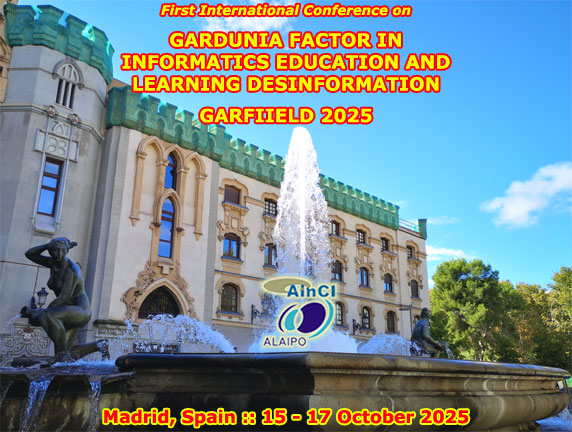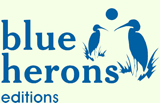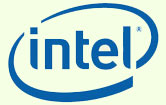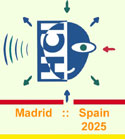
First International Conference on
Gardunia Factor in Informatics Education and Learning Disinformation
( GARFIIELD 2025 )
:: Madrid – Spain ::
October 15 – 17, 2025
| Home |
| Topics |
| Important Dates |
| Paper Submission |
| Organization |
| Program |
| Registration |
| Publications |
::. BBK .::
Birkbeck University of London
UK
::. CNR - IMM .::
National Research Council
Italy
::. FUN .::
Future University Hakodate
Japan
::. IIMROHTAK .::
Indian Institute of Management Rohtak
India
::. ITB .::
Institute of Technology Bandung
Indonesia
::. KETTERING .::
Kettering University
USA
::. KNU .::
Kainan University
Taiwan
::. LEEDS .::
University of Leeds
UK
::. MCU .::
Ming Chuan University
Taiwan
::. METU .::
Middle East Technical University
Turkey
::. MJU .::
Myongji University
South Korea
::. MSU .::
Moscow State University
Russia
::. NUU .::
National United University
Taiwan
::. POLITO .::
Polytechnic University of Turin
Italy
::. PURDUE .::
Purdue University
USA
::. U-AIZU .::
University of Aizu
Japan
::. UBA .::
University of Buenos Aires
Argentina
::. UCC .::
University College Cork
Ireland
::. UCM .::
Complutense University
Spain
::. UCR .::
Universidad de Costa Rica
Costa Rica
::. UHK .::
University of Hong Kong
China
::. UIOWA .::
University of Iowa
USA
::. ULB .::
Free University of Brussels
Belgium
::. UNC .::
National University of Córdoba
Argentina
::. UNIGE .::
University of Genoa
Italy
::. UNILJ .::
University of Ljubljana
Slovenia
::. UNIMOL .::
University of Molise
Italy
::. UNIST .::
University of Split
Croatia
::. UNIVE .::
Ca' Foscari University of Venice
Italy
::. UNTREF .::
National University of Tres de Febrero
Argentina
::. UofO .::
University of Ottawa
Canada
::. UOI .::
University of Ioannina
Greece
::. UPR .::
University of Puerto Rico
Puerto Rico
::. US .::
University of Sevilla
Spain
::. VUA .::
Vrije Universiteit Amsterdam
the Netherlands
::. WASEDA .::
Waseda University
Japan
::. WSU .::
Wayne State University
USA
HOME |
|
Introduction and Topics, Deadlines and Program Committee 1. Introduction and Topics Over the years, there has been a distinction between education and learning, as well as between communication, information and data, to name a couple of examples. However, nowadays they are mistakenly used as synonyms, through new information technologies, and more specifically, in social networks and in educational institutions. From the perspective of communication theory and information technology, the sum of each of the contributions made by the pioneers and specialists of the 20th century provided a more accurate picture of reality and context. This is a bipolar paradigm: Algorithms + democracy, or also, algorithms + autocracy. On the other hand, this last equation has begun to be observed with educational corruption and verticalist / authoritarian power, which is being silently implemented in the classrooms. These educational centers should have as their north in their daily activities universal access to secular education, and not formative commercialism. As is well known, “education” and “health” are the two fundamental pillars of any society that calls itself developed from a cultural point of view. Therefore, it is necessary to examine in detail this negative factor called the Garduña (Spanish) or Gardunia (English), which from the computer sciences is not only eating away at the foundations of universities founded in the 13th century (Salamanca), or those nominally referred to European royalty (Madrid), or new international university (La Rioja) to cite a couple of examples from the Mediterranean, but also promotes social and global disinformation. This is a reality that is already affecting the quality of education, the veracity of online data and the transparency of citizen information and communicability. Below is a first set of main and secondary themes, which can be expanded by potential participants in this international conference:
These are some of the reasons why this space is opened for constructive debate, the presentation of projects, new paradigms, discourse analysis methodologies, techniques for detecting fake news, etc., among other tools that can facilitate the task of information and communication professionals, given the emergence of artificial intelligence. These first topics do not exclude others that can be added to the set. All of them will be welcome. This list must be complemented with another pillar of culturally developed societies, such as the process of learning and education of a secular, free and universal type. That is, maintaining the basic principle that the media not only inform, but also educate people. This is an international conference “100% in-person.” Best regards, Francisco V. Cipolla Ficarra (Chair - coordinator) ALAIPO: Asociación Latina Interacción Persona-Ordenador –Latin Association of HCI (www.alaipo.com) and AINCI: Asociación Internacional de la Comunicación Interactiva –International Association of Interactive Communication (www.ainci.com). Address: Via Tabajani, S. 15 (7) - 24121 (Bergamo) Italy :: c/ Angel Baixeras, 5 - AP 1638 - 08080 (Barcelona), Spain. Email: info@alaipo.com :: info@ainci.com P.S. If you wish to be removed from this mailing list, please send an email to info@ainci.com or info@alaipo.com with remove in the subject line. Thanks.
2. The events have the following deadlines: :: Works Submissions: Open. Consequently, as they are received, they will be evaluated. It is a way to speed up the process to make up the final program of the international conference, visa requirements, should plan travel well in advance, etc. In other words, it is not necessary to wait until the deadline to send them for the evaluation process. :: Deadline: 09.21.2025 – 23:59 local time in Hawaiian Islands Conference: October, 13 - 15
3. Program Committee: :: Francisco V. Cipolla Ficarra (chair - coordinator) Demo Session, Poster Session, Workshop Session, Parallel Session, Research in Progress and Doctoral Consortium: Ana Martínez. Complutense University (Spain), Carmen García. University of Sevilla (Spain), Giulia Mancini. University of Rome Tor Vergata (Italy), and Miguel C. Ficarra. AInCI, ALAIPO and FMF (Italy & Spain). Honorary Committee: :: Jaap van Till. Delft University and HAN Polytechnic (the Netherlands) Scientific Scientific, Steering and Technical Committees: :: Adriana Ortiz. Complutense University (Spain) |
|
| © 1997 - 2025 ALAIPO & HCI Lab | ||||
|---|---|---|---|---|





























